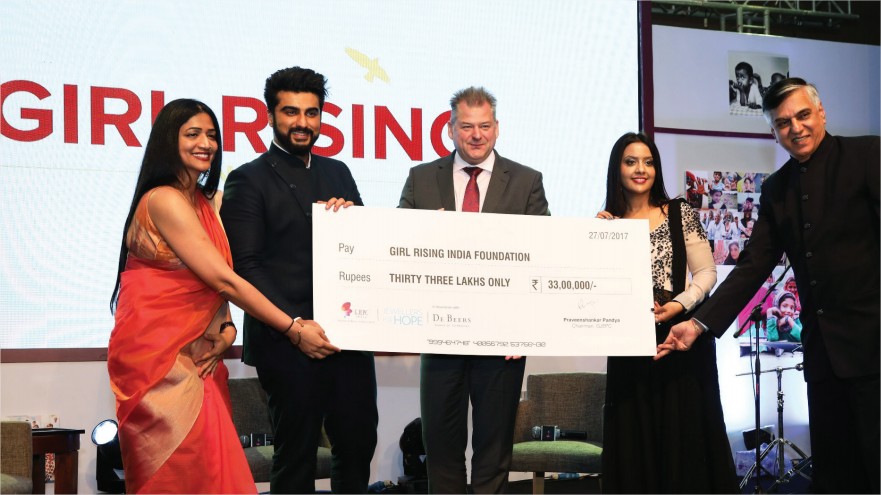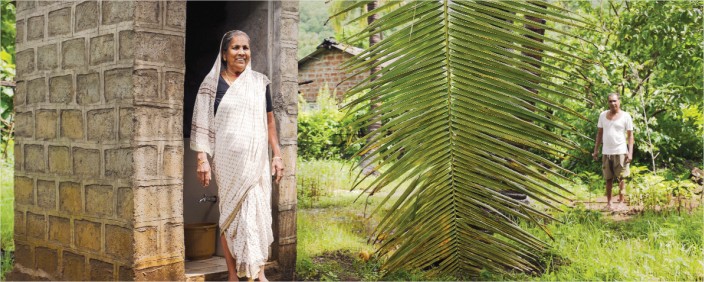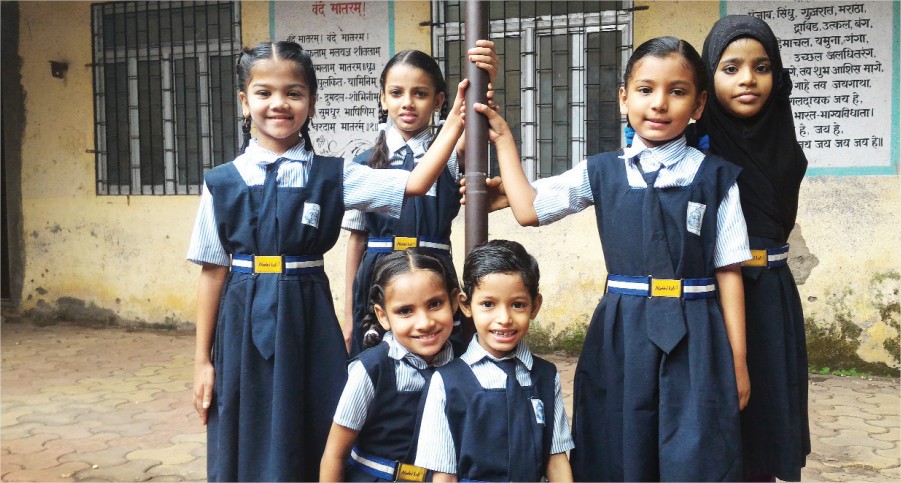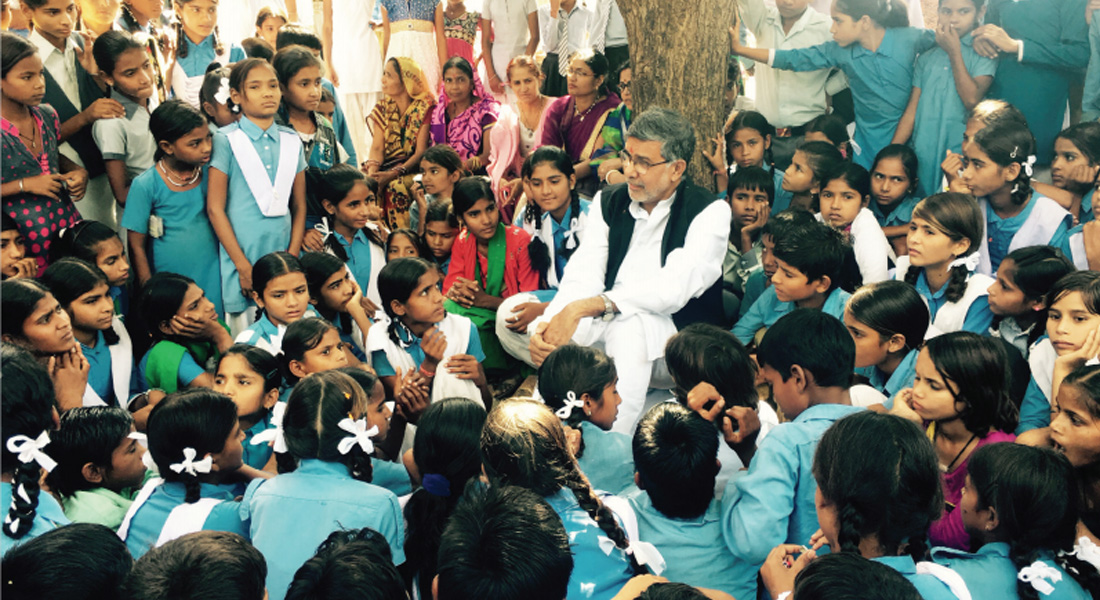Mahatma Gandhi once said, ‘The simplest acts of kindness are by far more powerful than a thousand heads bowing in prayer.’ The Gem & Jewellery Export Promotion Council fully supports and follows Gandhi’s maxim in principle and policy.
The council was set up by the Ministry of Commerce, Government of India in 1966, to boost India’s exports, and was granted an autonomous status in 1998. Representing nearly 7,000 exporters, the GJEPC has been continuously striving to expand its reach and depth in its promotional activities as well as widen the services to its members.

It has also been actively engaged in giving back to society by helping several non-governmental organizations and ‘everyday heroes’, who are doing exemplary work in the field of social service through sustainable programmes and enduring commitment.
CSR Initiatives
Corporate social responsibility (CSR) is no longer defined by how much money a company contributes to charity, but by its overall involvement in activities that improve the quality of people’s lives. The gem and jewellery export industry, a US$ 40 billion business, employs over 5 million directly in the business, and sustains millions of dependents indirectly. The members of this mammoth trade have believed in the ‘Deed of Giving’ since decades by nurturing diamond workers in their respective processing units.
Jewellers for Hope (JFH) is the CSR arm of the GJEPC, and each year since its inception in 2014, the organization has donated money to one or more (divided between them) NGOs/charity doing exceptional work in supporting the underprivileged. Several of these organizations work to alleviate the suffering of and impart dignity to affected women and children.

Thus, the GJEPC ensures that it touches and transforms the lives of thousands of Indians, who are marginalized by society.
In August 2019, a fund was raised from Jewellers for Hope Charity Dinner event and evenly distributed among Army Welfare, Tribal Integrated Development & Education Trust (TIDE) and Shrimad Rajchandra Love and Care (SRLC).
Touching the lives of those who selflessly guard the nation, JFH funded projects for Army welfare and undertook internal painting of the Diamond Army Wives Welfare Association Hostel (DAH).
The Tribal Integrated Development & Education Trust (Tide), part of the Bhansali Trust, has been working ceaselessly to improve the lives of poor tribal people. The Trust is currently engaged in working on projects in 17 states, including the Musahar community in Bihar. The council funded their programme in Kishangunj, Bihar, which focusses on primary education, primary health care and hygiene, income generation through microcredit groups, etc., of tribal and Musahar communities.
The council also contributed towards another NGO that aims to make a difference in the lives of many. SRLC works towards bringing about a change in the lives of the underprivileged across life spectrum. The unique 10-fold benevolent programme is spread over 50 cities worldwide, and has over 500 volunteers dedicated to a number of causes related to mankind, animal welfare and the environment. In an effort to provide affordable healthcare and maternal care services to the remotest areas of Gujarat, SRLC has established Neonatal Intensive Care Unit (NICU) in Shrimad Rajchandra Hospital in Valsad district. It is proposed to contribute towards the said NICU, which plays a major role in saving the lives of premature born infants and treating those with birth complications.
In 2018, the Jewellers for Hope Charity Dinner raised money to support Nobel Laureate Kailash Satyarthi’s Voluntary Action Association’s ‘Bachpan Bachao Andolan’ that is relentlessly pursuing to end bonded labour, child labour and human trafficking, as well as demanding the right to education for all children.
The council also supported Giants Welfare Association and Bhagwan Mahaveer Viklang Sahayta Samiti’s ‘Jaipur Foot’ initiative. The latter has provided Jaipur Foot or artificial limbs, calipers, and aids and appliances to over 1.78 million beneficiaries mostly in India, and in 26 countries in Asia, Africa and Latin America.
In 2017, the charity arm of the council donated money to Nanhi Kali Foundation that takes care of the girl child education, especially from the underprivileged sections. Empowering women with education and, in turn, making them self-sufficient is in alignment with the council’s objectives. The fund supported 1,166 students of the foundation through academic, material and social support in 347 schools in Uttar Pradesh and Madhya Pradesh. The council donated money to the ‘Girl Rising’ initiative where 3,734 students in Jammu & Kashmir and 16,308 students in Delhi from classes V to IX benefitted.

That year, JFH also donated money to Makea-Wish Foundation that helped grant 540 wishes to children aged 3-18 years battling with life-threatening diseases.
Economic integration happens in a country only when sustainable rural development programmes are successful. Swades Foundation helps in offering holistic rural development and has reached out to over 2,000 hamlets in Maharashtra so far. To support their cause, JFH provided funds to benefit around 4,560 people from 912 households through sanitation and clean water access programmes.
Friends of Tribal Society is another NGO which was presented with a cheque to support 250 schools comprising 7,224 students studying in tribal areas.
In 2014, Make-a-Wish Foundation was the sole beneficiary of JFH. The grant helped fulfil 1,700 wishes of children aged 3-18 years suffering from life-threatening diseases.
Companies, establishments or governing bodies cannot survive in isolation and each has the primary responsibility to be socially and ethically accountable in order to find a perfect balance between economic growth and societal welfare.
Global organizations have come together to partner with GJEPC in its endeavour to make a change in the society. De Beers has contributed year-on-year since 2016. GSI and GIA have also been integral to the cause.
“The Gem & Jewellery industry since its inception has believed in the ideology of giving back to the society. Whether it’s at individual level or collectively, the industry has contributed generously to the development and betterment of the society. The initiatives and development programs have only grown as the industry took new strides every time.”
– Milan Chokshi, PM&BD,
Convener, GJEPC

